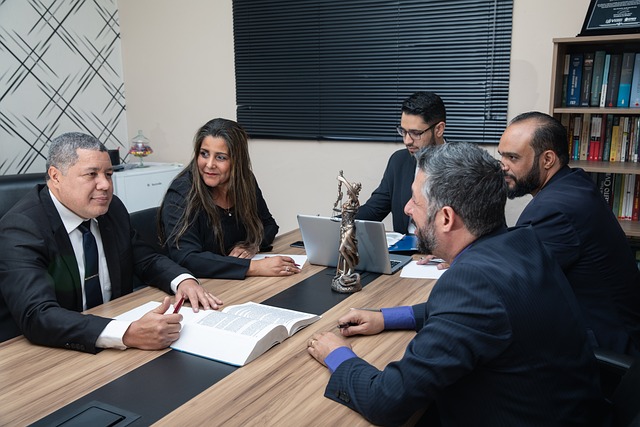Employment practices liability, or EPL, insurance is an insurance type that’s designed to protect employers from lawsuits by employees.
If you’re wondering if your business needs employment practices liability coverage, here are seven signs that it’s time to check into EPL insurance and find out how much coverage you need.
[Show seven signs] Here’s how employment practices liability insurance protects your business and employees.
1) You have more than 10 employee’s

If you have more than 10 employees, it is time to consider employment practices liability.
This coverage provides protection for your business against claims of wrongful termination and other employment related violations.
This type of coverage is especially important if you are a small business with a large number of part-time or seasonal workers.
Be sure to discuss the benefits and risks of this coverage before purchasing it so that you can make an informed decision about whether it is right for your company.
You should always read your policy carefully and understand what exclusions exist that may limit coverage under certain circumstances.
A qualified professional can help you understand how policies work and provide guidance as you choose the best option for your business.
2) You’re in a high-risk industry
If you are in a high-risk industry, such as health care, where employment practices liability is common, it’s important that you have the coverage.
It can be difficult to know if your business needs EPL coverage because there are many factors to consider.
Some industries, like construction and manufacturing, require more of this type of coverage than others do.
If you’re not sure whether or not your company would need this type of coverage, check out these ways to know for sure
1) Does your company hire outside contractors?
2) Do you work with hazardous materials?
3) Is there anything dangerous on the premises (e.g., machinery)?
4) How often does your business change employees?
3) You have employees in multiple states
One of the ways to know if your business needs employment policies liability is if you have employees in multiple states.
This coverage protects your business from discrimination lawsuits, wrongful termination claims, and more.
You might need this type of insurance if you’re a small business owner. It covers discrimination suits, wrongful terminations and other labor law issues.
It’s also necessary if you employ people in different states or who work remotely.
If you’ve been in business for more than five years, it’s recommended that you get this type of insurance.
Your industry/field : Certain industries are likely going to require their workers to have these types of policies too such as food service providers and childcare centers.
4) You have a history of employment litigation
There are a few tell tale signs that your business needs employment practices liability coverage.
One sign is if you have a history of employment litigation. This can be a red flag for potential lawsuits that may come up in the future.
The more employees you have, the greater the risk of litigation, so it’s important to take precautions now before an incident occurs.
It’s important to get information from your insurance agent about what types of coverage your business needs.
They can help you figure out the best type of policy for your company and provide examples of how they’ve helped other clients avoid or mitigate employment related problems
. You’ll want to consult with them on whether or not this coverage is necessary, how much it costs, and how often they would recommend updating the policy when changes occur within your company.
5) You don’t have an human resources department
If you don’t have an HR Department, or if you’re a freelance writer who has no employees of their own, you may need employment practices liability coverage.
This type of insurance protects your company from lawsuits filed by former employees for discriminatory reasons, wrongful termination and more.
Having employment practices liability coverage is essential for any small business with less than 20 full-time equivalent employees.
Not only does this type of insurance protect your company from lawsuits filed by former employees for discriminatory reasons, wrongful termination and more, but it also helps keep costs down.
A recent study found that businesses with 50 or fewer employees had the highest rate of uninsured businesses in the country.
and how much does it cost? With its low premiums, high deductible and employee limit, employment practices liability is often one of the least expensive types of commercial insurance available.
6) You don’t have an employee handbook
Employment practices liability (EPL)insurance is a form of business insurance that covers your company against employee related lawsuits. One way to know if your business needs this type of coverage is if you don’t have an employee handbook.
Without one, you might find yourself legally liable for any transgressions committed by employees. Furthermore, without EPL coverage, your company could be on the hook for any compensation or benefits owed to terminated employees as well as judgments and settlements stemming from employment law disputes.
This kind of policy also offers protection when it comes to hiring decisions.
Employers are often held responsible for negligent hiring, which means they can be sued if they hire someone who goes on to commit a crime at work or in the surrounding community.
7) You don’t have an anti discrimination policy
If you have employees, it’s important that you have an anti discrimination policy in place.
This will help your business avoid the expense of defending a lawsuit filed by a former employee who feels they were discriminated against while they worked for your company.
You haven’t updated FMLA regulations: The Family and Medical Leave Act (FMLA) protects workers from being fired or retaliated against when they take time off work to care for themselves or loved ones.
